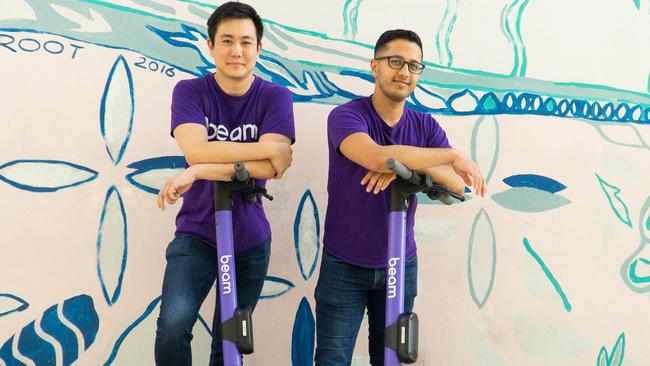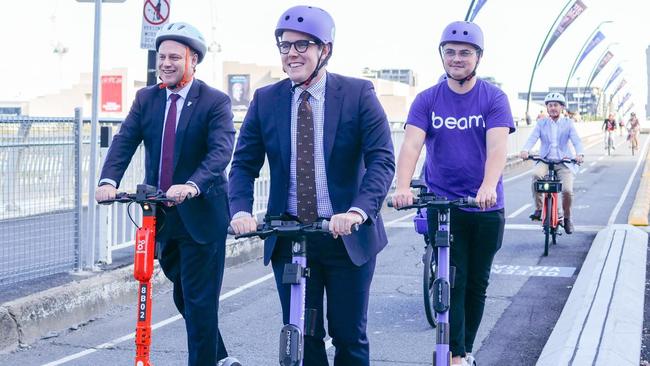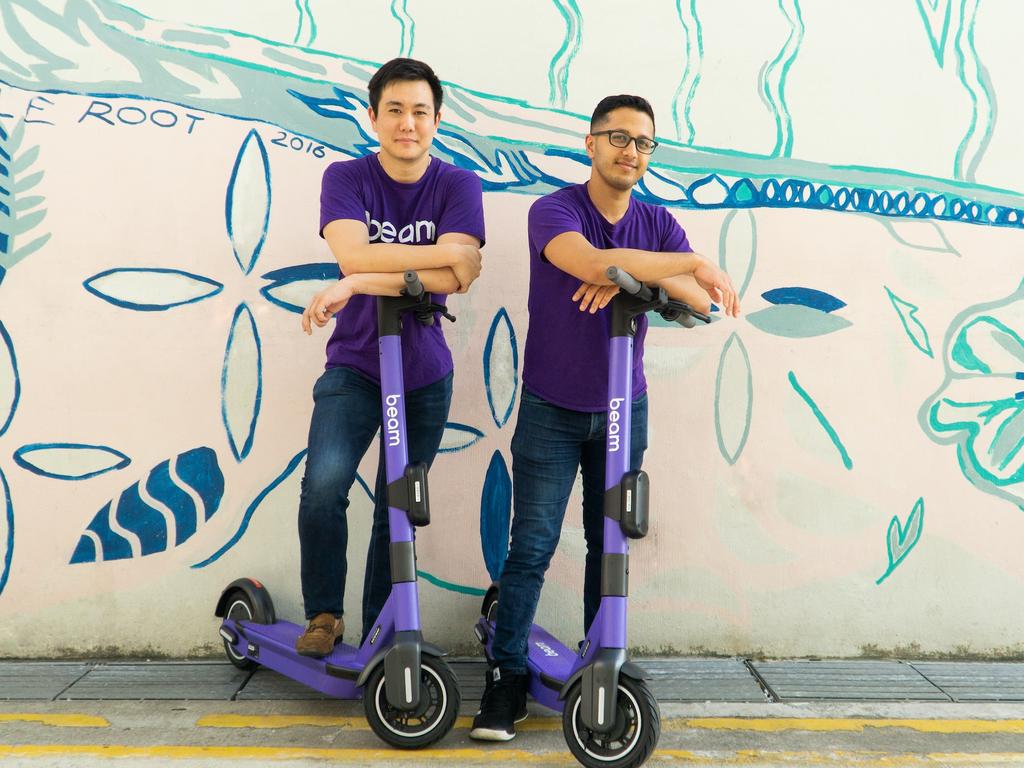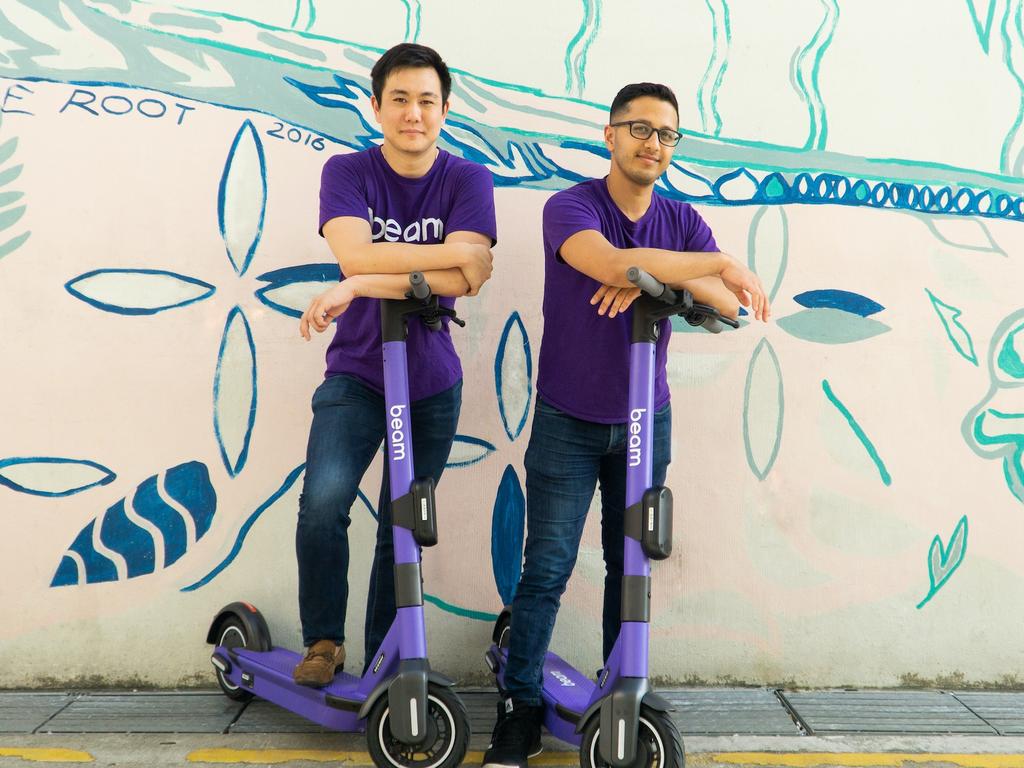Beam Mobility forced to pay compensation to seven local governments
Global e-vehicle firm Beam Mobility has been forced to negotiate compensation payouts to seven councils across Australia and New Zealand after being caught out exceeding safety limits.

Global e-vehicle firm Beam Mobility has been forced to negotiate compensation payouts to seven councils across Australia and New Zealand after being caught out exceeding safety limits on the number of scooters allowed to be deployed onto the cities’ streets.
The Singapore-based operator has been referred for police investigation in Auckland and dumped as an operator by four councils, including Brisbane, after revelations last year by The Australian that it had put hundreds of extra “phantom” scooters on city streets that cheated the local governments out of hundreds of thousands of dollars in annual registration and trip fees and subverted safety caps.
Internal company documents leaked at the time supported allegations by a whistleblower that the company had a deliberate strategy – dubbed the Running Hot Project – to deceive the councils’ monitoring app that tracked the number of vehicles on the cities’ streets.
It was alleged the extra scooters were deemed as “unknown” on the app and wrongly recorded as not being available to ride.
An investigation commissioned by Beam Mobility, and conducted by Pitcher Partners, found that up to 22 per cent of the company’s fleet across the seven councils had been recorded as “unknown” between January 2023 and August, last year.
The report also found the existence of “unknown” scooters in seven other council areas.
But Pitcher Partners said the records showed the number of “unknowns” in the second group of local governments were either negligible or only appeared for a few months in the city and did not “significantly impact” their contracts with those councils.
The report shows that the last “unknown” scooters detected in the monitoring apps occurred around the time The Australian published the allegations about Beam Mobility in late August.
It is understood that a study by Brisbane City Council found that Beam Mobility had exceeded its 1500 citywide cap by up to 40 per cent last year – almost twice the level found in the report commissioned by the company.

In a statement, Beam Mobility refused to declare in which city councils it had exceeded the scooter limits, citing “confidentiality agreements”.
It said its lawyers had “written to every partner council in ANZ about the results, offering a settlement or adjustment to affected councils”.
The Beam Mobility spokeswoman acknowledged the company had made “mistakes” as it rapidly expanded into new markets last year, and conceded it violated its operating agreements with local governments in some cities.
“All councils have been provided with their relevant overage statistics, should they have occurred,’’ she said. “Our focus for 2025 is on rebuilding trust with our partners – governments, councils, regulators, customers – and the community.”
Beam refused to say whether it took any disciplinary action against its staff or executives.
Established in 2018, Beam operates in more than 60 cities globally. Its scooters and bikes are in 37 locations in Australia and New Zealand, including Sydney, Perth, Darwin, Adelaide, Cairns, Townsville, Hobart and regional towns in every state.
Last year, The Australian published extracts from a cache of emails and internal messages from the company’s “war-room” Slack chat, exchanged by senior executives including its two Yale University graduate founders, that revealed the inner-workings of the scheme, which allegedly delivered fake, real-time data to the independent monitoring app that tracked the number of vehicles and trips.
At the time, Beam CEO Alan Jiang issued a statement saying the company was “deeply apologetic” for exceeding vehicle allocations but insisted it was unintentional and “emphatically reject(ed) any suggestion that this was a ‘scheme’ to deprive councils of revenue”.






To join the conversation, please log in. Don't have an account? Register
Join the conversation, you are commenting as Logout